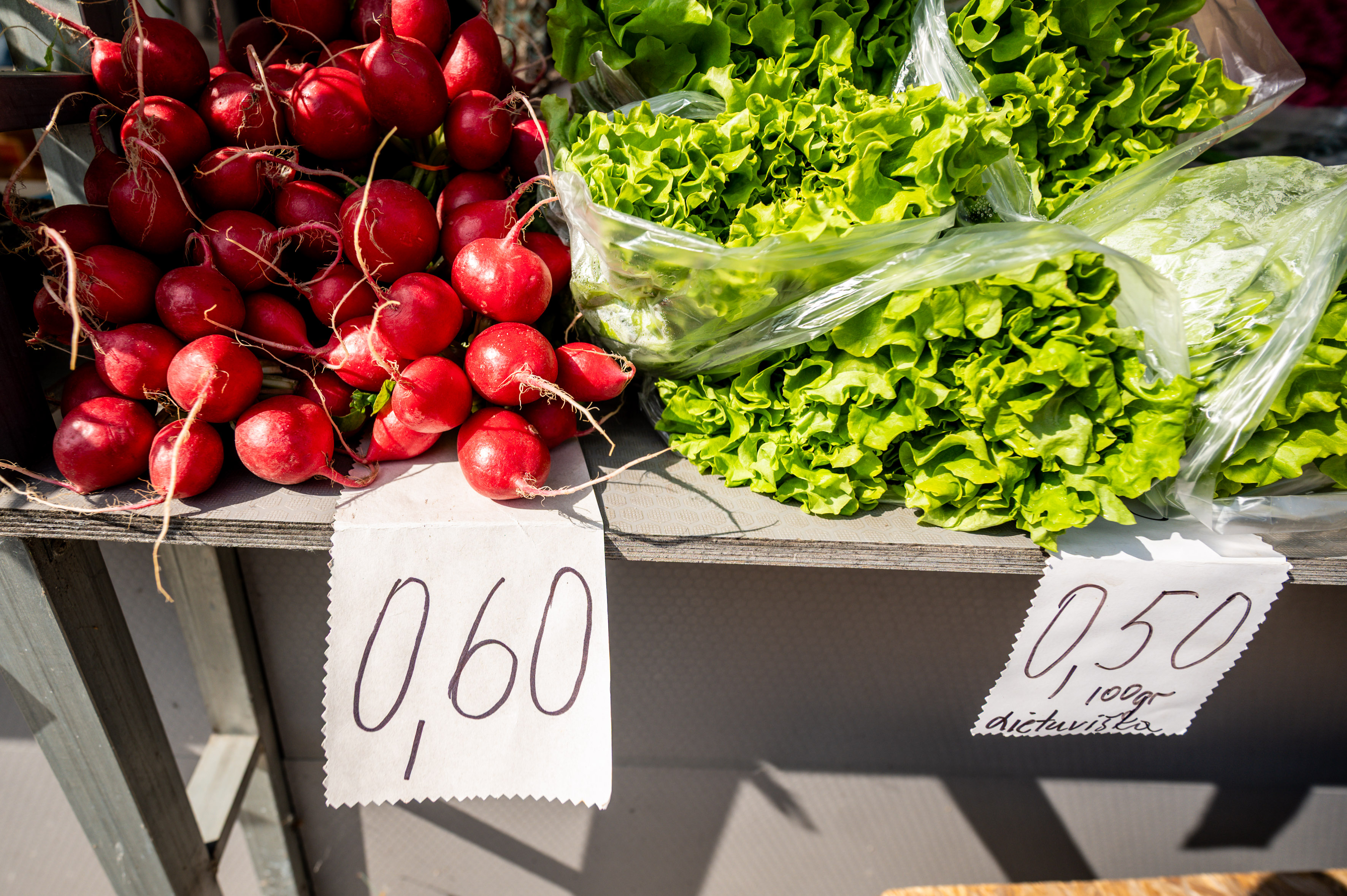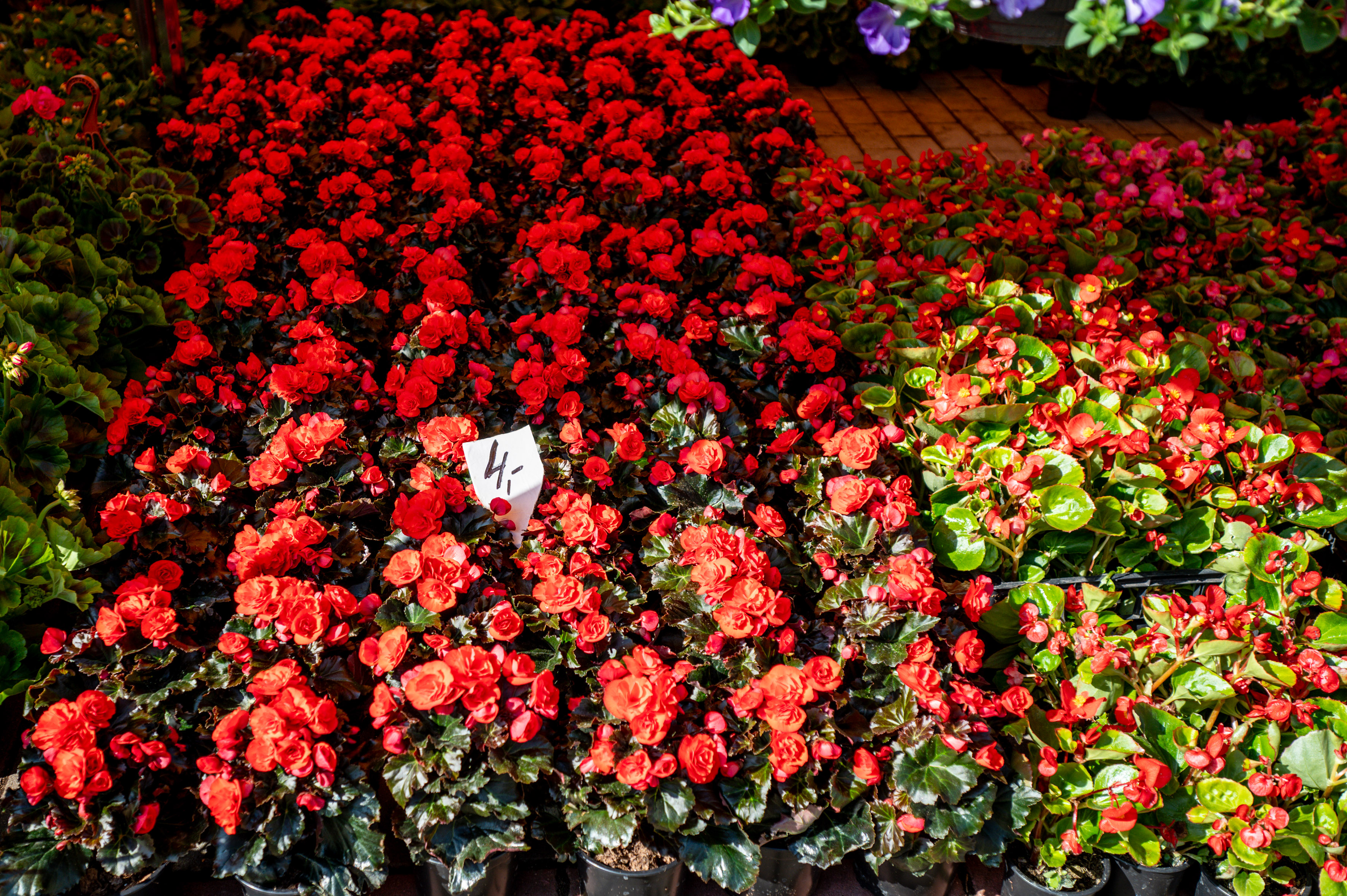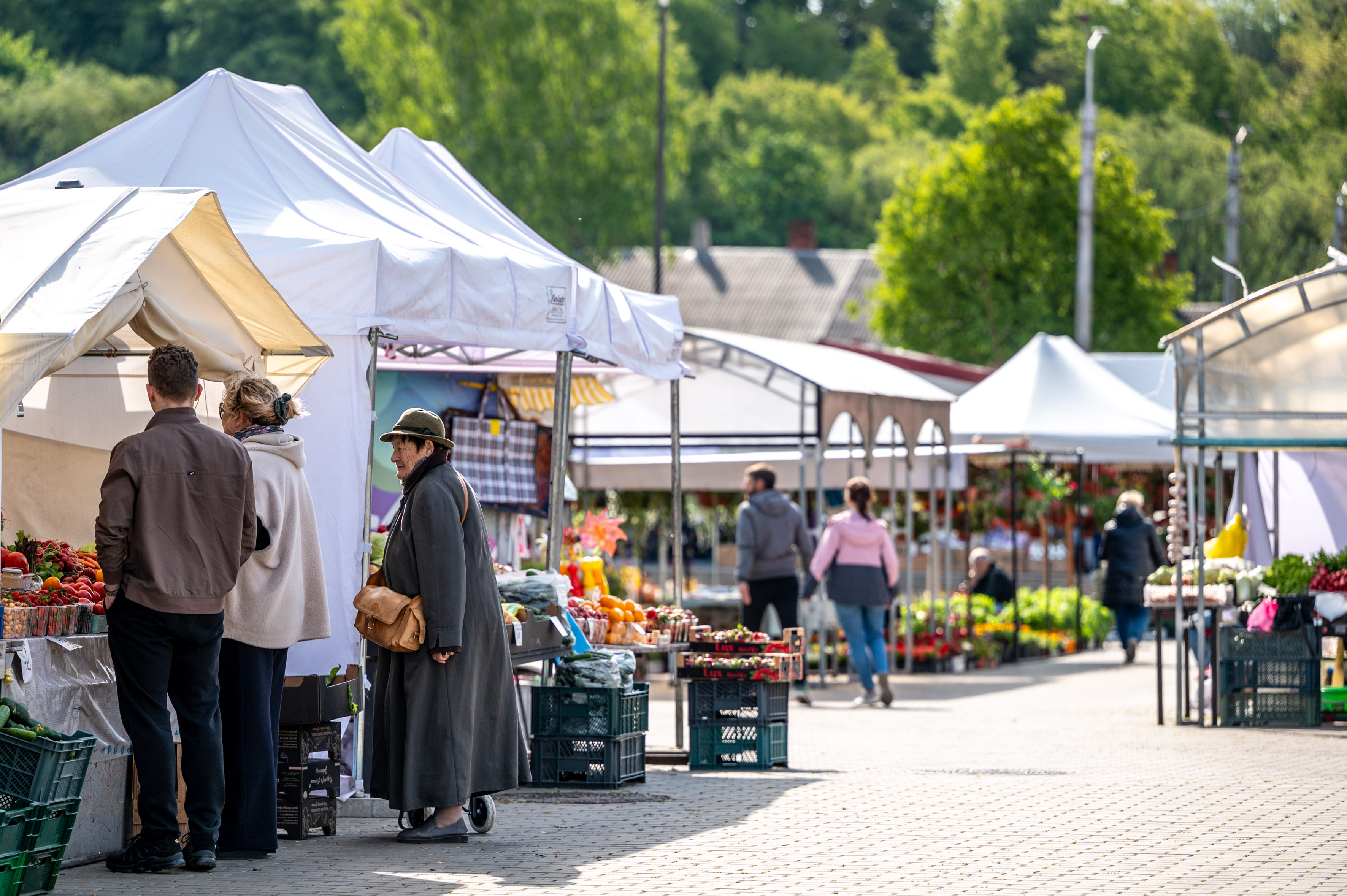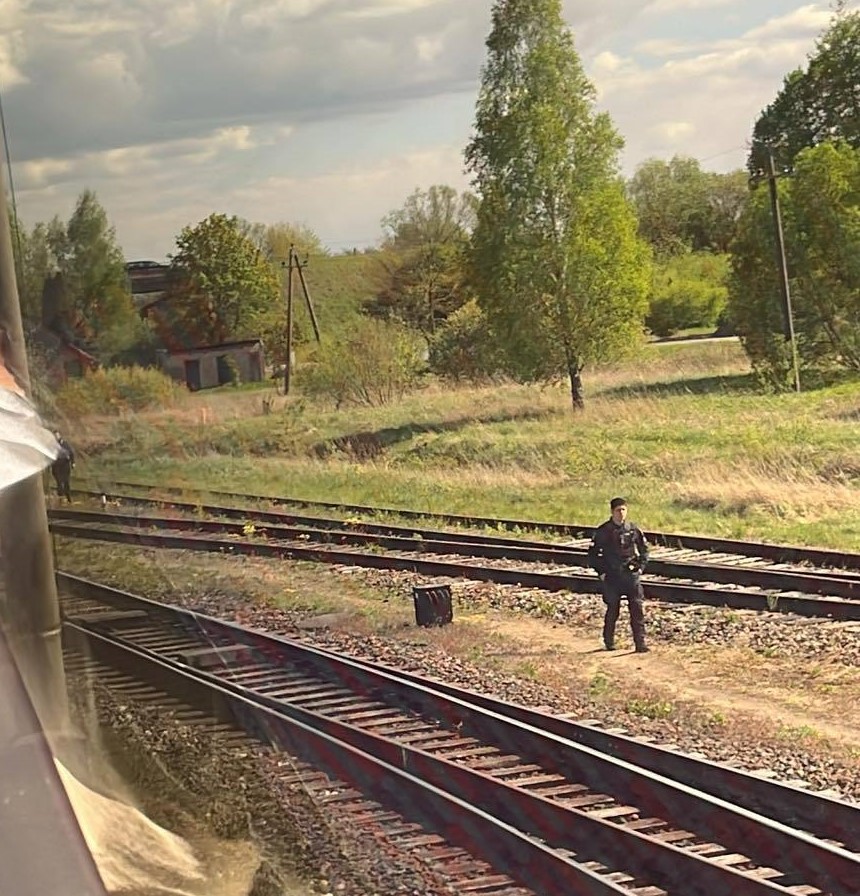In the market – the abundance of sellers and the lack of buyers
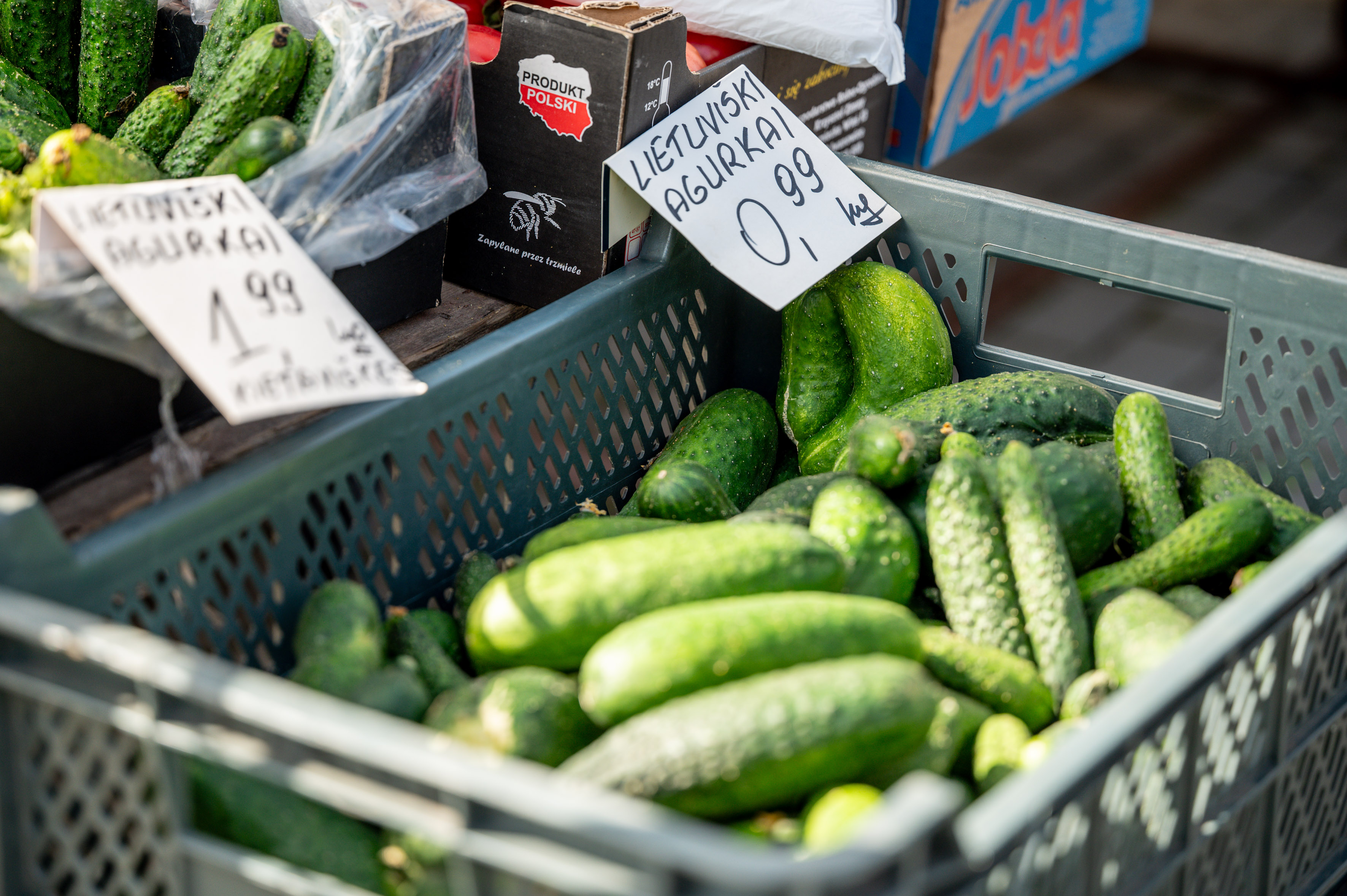
« 3.5 euros for eggs, » said the price for 10 pieces sold on the sidewalk at the entrance to the market. A woman hearing eggs and went deep into the market.
No congestion, no bunch of people, no rows – such a Saturday morning at the station market.
« Where did we put the buyers? » He whispered before going to an interview for many years at this market. « I have no shortage of buyers – some of me to serve and others already come.
« Dear, but I know that this lady is raising herself, so I just buy it with her.
Photo by Justina Apulskė
« People go, look, but often just lean on their heads – expensive, they say, » says Danutė, a salesman who sells vegetables. Fresh Lithuanian potatoes – 1.8 euros per kilogram, last year – euro, carrot kilogram – euro.
The market does not sound cheap, although most of the goods are local origin. Traders do not hide: everything is more expensive – from fertilizer to fuel, from local tax to labor. When costs rise, prices also have to be raised.
« If you still increase taxes, many will simply close here. We keep on will and hope, not on profits, » said Rasa, selling fruit.
« The government’s ambition to increase taxes is very unfortunate, but it will lie on the shoulders of buyers. The market will decrease and prices will be even less. It will not make sense to trade in the market, » Rasai says Ilona, who sells nearby.
At the market, it is feared that plans to increase taxes can make it even more difficult for small businessmen, including market traders. Changes in taxation can touch both individual activities and farmers’ income.
Photo by Justina Apulskė
« Yes, in stores, and especially if any campaign is cheaper. But we still hope that the market is better quality, but it happens in every way, » a Kaunas couple says they like to visit the market on Saturday morning.
And even though they still buy to shop when they come to shop, they say, expensive.
There are already Lithuanian strawberries in the market, with a kilogram of 12 euros. Greek strawberries – 4.5 – 3.5 euros per kilogram.
Radishes from Poland – 0.6 euros, 100 grams of salad – 0.5 euros, Lithuanian cucumbers 2.5 euros, but can be found for the euro, but will not be very good -looking.
Looking at the supply of seedlings in the market is spring, but there are few buyers and sprouts.
« It is still cold, planting in the soil is premature, so people are in no hurry, » says Aldona, a small number of buyers.
Photo by Justina Apulskė
Tomatoes, cucumbers, zucchini, pumpkin sprouts cost almost all sellers similar to 2 euros, herbal sprouts start at 0.50 euros, the price rises depending on the size.
Flower sprouts or already grown petunias, surfins, begonias, geranium shrubs are also abundant. Flower prices vary widely.
« Is it 10 euros expensive? » The seller asks the Surfish Pot. « You think it’s very easy to grow like this? »
« Maybe it’s better to sell it cheaper than throwing it out at the end of the summer, » the buyer whispered. « I no longer know how to appreciate – expensive here or not. It is precious to me, for others, maybe inexpensive. »
Languages between buyers revolve around prices. One woman, holding two onion heads in her hands, laughs, « Today is more pleased with the eyes than to fill the basket. »
Photo by Justina Apulskė
At that time, the dealers themselves do not hide their anxiety – the season has begun, there is no shortage of goods, but without buyers, their tables are only decoration. Some of them are considering that they may have to shorten working hours or reduce their range.
Kaunas Station Market is not only a marketplace, but also a social mirror. Today, it reflects the reality: prices are raising faster than salaries, and consumer habits go to cheaper, faster solutions.
Will the market culture survive? For the time being, dealers still expect. But as long as people are just gone rather than buying, the market remains more scene than a place of exchange.

